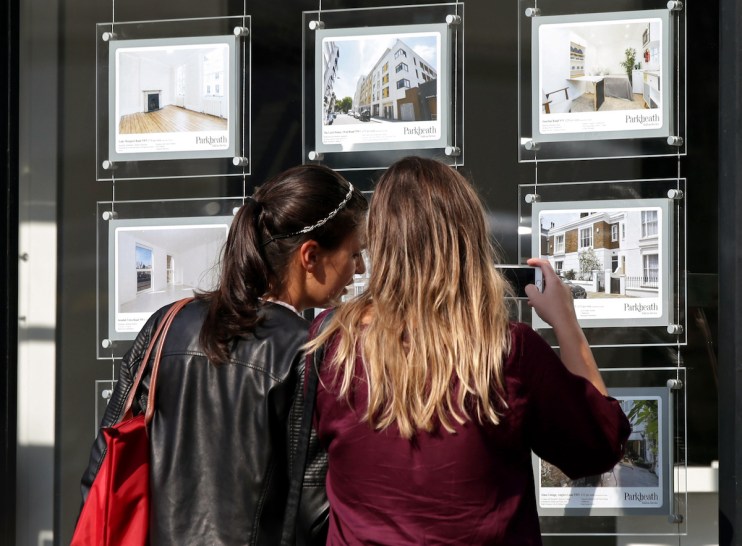House prices: Recovery speeds up as more than half of Brits now tap up parents to get on the ladder

House prices rose 0.7 per cent in January as cooling mortgage rates are continuing to help repair the market, a new report from Nationwide said.
The rise helped improve the annual rate of house price growth from -1.8 per cent in December to -0.2 per cent in January – the strongest outturn since January 2023.
Robert Gardner, Nationwide’s chief economist, said: “There have been some encouraging signs for potential buyers recently with mortgage rates continuing to trend down.”
“This follows a shift in view amongst investors around the future path of Bank Rate, with investors becoming more optimistic that the Bank of England will lower rates in the years ahead,” Gardner added.
The Bank of England raised interest rates 14 times to help curb soaring inflation, leading lenders to raise the cost of their mortgage deals, cooling demand and levelling off house prices growth.
While they have fallen since, an average two-year fixed residential mortgage rate today is 5.56 per cent, marking a significant fall from its July peak of over six per cent.
However, this remains a steep increase from December 2021, when it stood at 2.34 per cent.
On paper reports of falling mortgage rates are positive but many prospective buyers are still likely to struggle to get on the property ladder this year as house prices spike back up.
Nationwide said raising a deposit remains a major challenge for those wanting to buy, with a 20 per cent deposit on a typical first-time buyer home equating to c.105 per cent of average annual gross income.
This is down from the all-time high of 116 per cent recorded in 2022, but still close to the pre-financial crisis level of 108 per cent.
Prospective homeowners are now asking friends and family for financial help to meet the demands of increased house prices.
Nationwide said in 2022/23, nearly half of first-time buyers had some help raising a deposit, either in the form of a gift or loan from family or friends or through inheritance – up from 27 per cent in the mid-1990s.
Further recent data has suggested Brits are deliberately ‘coupling up’ to buy a home.